The 48th Regular Session of the Human Rights Council
13 September - 8 October 2021
ITEM 4- Human rights situations that require the Council’s attention
Interactive Dialogue with the Commission on Human Rights on the Oral Update on the Human Rights Situation in South Sudan
23 September 2021
By: Buba Ceesay/ GICJ
Executive Summary
At the 48th regular session of the Human Rights Council, the United Nations Commission for Human Rights in South Sudan (UNCHRSS) presented its oral update on the human rights situation in South Sudan, including progress made.
At the 17th meeting, the commission presented its oral update to the Council. The commission drew the attention of the Council to the human rights situation in South Sudan and the progress made so far by the government. The commission expressed its concern about the widespread and localized violence which has engulfed 9 of the 10 states in South Sudan. The commission called on the government of South Sudan to show political will in the country's transition to a more peaceful and stable country. It stressed its dissatisfaction with the slow pace of the transitional justice agenda and the implementation of the revitalized agreement, noting that this is an obstacle to peace and stability in the country. The commission reiterated its concern about serious human rights violations, such as extrajudicial killings, repression of media and activists, and a host of other violations that are widespread in South Sudan. Concern about the lack of accountability for serious violations, creating pervasive impunity in South Sudan for human rights and humanitarian law violations was also raised.
The commission detailed the level of corruption and embezzlement of public funds by the political elites in South Sudan and linked these heinous activities to the clear violation of the right to life, health, and education.
The commission, however, acknowledged the progress made by South Sudan, such as the restitution of the Legislative Assembly and the constitution-making process, and commended the government, but called on the government and stakeholders to redouble their efforts and commitment to ensure that justice and respect for the rule of law prevail in South Sudan.
South Sudan described s comments as not reflecting the true feelings on the ground and claimed that the country had made progress and that the security situation was relatively stable. He argued that the constitutional reform project and the military courts that have tried and held perpetrators accountable are part of the progress made by South Sudan. However, the government of South Sudan did not respond to specific human rights and humanitarian issues raised by the commission.
Delegations, interested states, NGOs and civil society organizations expressed concern about the human rights situation in South Sudan and acknowledged the invaluable work of the commission.
The Geneva International Centre for Justice (GICJ) welcomes the update of the commission and applauds it for its immense work. It has joined the order in condemning the violations of human rights and humanitarian law in South Sudan and urging the government of South Sudan to address the plight of human rights victims and to take immediate steps to implement Chapter V of the revitalized agreement to ensure reparation and closure for the victims.
Background
The UNCHRSS was established by the Human Rights Council on the 23rd of March 2016 by resolution A/HRC/RES/31/20 with a mandate to, inter alia, determine and report the facts and circumstances of, collect and preserve evidence of, and clarify responsibility for alleged gross violations and abuses of human rights and related crimes, including sexual and gender-based violence and ethnic violence, to end impunity and provide accountability. The commission’s mandate has been further extended in 2017[1], 2018[2], 2019[3] and 2020,[4] respectively. Its current term was extended by the Council on 23rd March 2021 by resolution A/HRC/RES/46/23 wherein the Council also requested the commission to present an oral update to the Human Rights Council at its 48th session, including on progress made.
In accordance with resolution 46/23, the commission presented its oral update to the council during the 17 Meeting of the 48th regular session of the council. During this gathering, various speakers made presentations on the human rights and humanitarian situation in South Sudan. The main speakers were Nada Al-Nashif, The Deputy High commissioner for Human Rights, Yasmin Sooka, Chairperson of the commission, Andrew Clapham, a member of the commission, who gave a detailed account of the fragile nature of South Sudan’s transition and raised concern over the various human rights and humanitarian issues plaguing South Sudan, including corruption and financial crimes perpetrated by political elites of South Sudan through the illicit diversion of public fund.
ID with the Commission
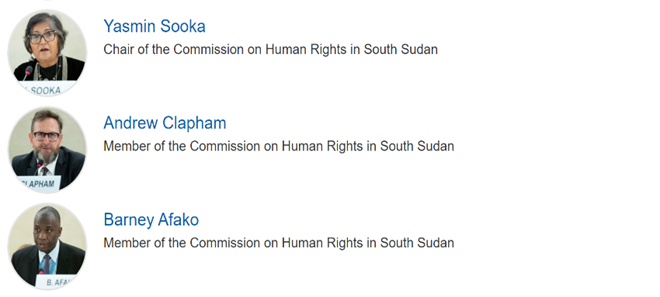
Geneva, 23 September 2021, The Deputy High Commissioner for Human Rights, Nada Al-Nashif, presented an oral statement to the council on the human rights situation in South Sudan. Speaking at the meeting, Nada Al-Nashif expressed deep concern over the staggering localized violence, mainly perpetrated by community-based militias in South Sudan. She pointed out that this violence accounts for 90% of the killings, sexual violence, abductions, and injuries in South Sudan and that more than 1,090 innocent civilians have been victims of this violence since April of this year. She implored the government to engage local leaders to seek a peaceful solution to this violence. The Deputy High Commissioner underscored that the slow and selective implementation of the Revitalized Agreement and the transitional justice mechanism, essential for national reconciliation, healing and rebuilding of rule of law, are contributing to the uncertainty surrounding the peace process in South Sudan. She further reiterated concern over the lack of accountability for human rights violations and extrajudicial killings in South Sudan. She urged the government to end such practices and bring the perpetrators to justice.
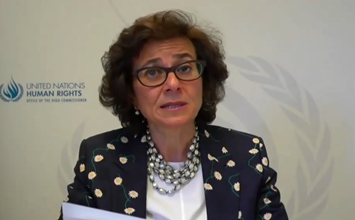
Nada Al-Nashif noted that South Sudan has made progress in promoting and protecting human rights. among the achievements, she underlined the recent reconstitution of the Legislative Assembly, the appointment of the first female speaker, and the launch of a technical committee to undertake the consultation for the establishment of Truth Reconciliation and Healing commission. She, however, stressed that more actions are needed to ensure sustainable peace and rule of law in South Sudan. She called on the government of South Sudan to work with the African Union to ensure the establishment of the hybrid court.
She concluded that the OHCHR will continue to fully support the commission on Human Rights in South Sudan in implementing its mandate and is committed to supporting the Government of South Sudan in the implementation of the Revitalized Agreement and other human rights programs.
Oral Update of the Commission on Human Rights in South Sudan
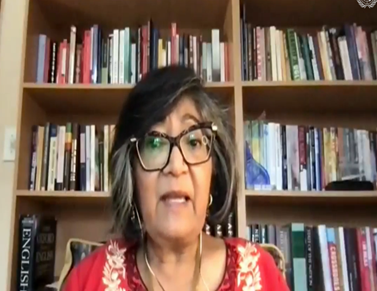
The presentation of the Deputy High Commissioner was followed by the presentation of Yasmin Sooka, Chair of the commission, and Andrew Clapham, member of the commission, who presented a comprehensive oral update to the Council. Speaking on behalf of the commission, Yasmin Sooka called attention to the uncertainty about the transition process in South Sudan. She stated that “South Sudan’s transition is faltering, with a humanitarian crisis unfolding, characterized by insecurity and the erosion of human rights.” Detailing the humanitarian situation in the country, she said that 9 out of 10 states in South Sudan are experiencing localized conflicts and scores of innocent civilians continue to endure most of these conflicts. She added that the violent clashes in the country, including in the Upper Nile region, are the result of the proliferation of armed groups outside the peace process and the fragmentation of the SPL-IO. She stressed that the political leadership in South Sudan is actively participating in and facilitating this violence. She recounted that South Sudan has seen an unprecedented increase in poverty, with 80% of the population living in extreme poverty, more than 7 million people suffering from hunger and tens of thousands facing famine. She described this situation as a clear demonstration that the national leadership in South Sudan seems to have abandoned its social and economic responsibilities to the people of South Sudan.
On the human rights situation in South Sudan, Sooka revealed that women and children were raped, sexually violated, and killed in South Sudan. She added that several women and girls, at the behest of armed groups, were forcefully intermarried and subjected to sexual slavery. She also told the Council that the government of South Sudan is limiting the civil space needed to encourage debate and the peace process, by violently repressing civil societies, shutting down the internet and media throughout the country, and using excessive force to counter the planned national demonstration by the People's Coalition for Civil Action. She unveiled that there has been a sharp increase in attacks on humanitarian workers, including the attack on 17 September when the WFP convoy was attacked in Central Equatoria, which led to the suspension of humanitarian activities and relocation of aid workers. In addition, she highlighted that over 56 individuals, including children, were summarily executed in Warrap state and these killings are widespread and systematic, and no accountability measures have been taken for such violations. She stressed that lack of accountability, enforcement agency and survival support structures entrench impunity and exacerbate victimization and suffering. Commenting on the plight of children in South Sudan, she stressed that hundreds of children have been forcefully recruited by various armed factions.
She informed the council that the commission’s confidential list of perpetrators now totals to 104 individuals based on command and superior responsibility, adding that this will help in future accountability. She reminded the government of South of its human rights obligations and urged it and the AU to demonstrate political will and implement chapter 5 of the revitalized agreement so that the long-delayed transitional justice can be established. In concluding her statement, she called on South Sudan's leadership to be committed to inclusive power-sharing for sustainable peace in the country.
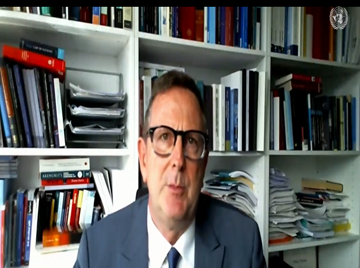
On his part, Andrew Clapham presented to the council the prevailing and hugely damaging political corruption and embezzlement of public funds in South Sudan. Clapham first indicated to the council its initiative to investigate prevalent economic crimes and diversion of state resources in South Sudan is in line with the mandate of the commission to clarify responsibility for violations and abuses of human rights and related crimes. Based on that mandate, he stated that the commission had sought to clarify that the government of South Sudan has responsibility for the violations of the right to health and education and the failure to provide the necessary resources to fulfil these rights is related to the misappropriation of public fund and linked to the violation of Articles 16 and 17 of the African Charter on Human and Peoples' Rights. Clapham further informed the council the economic crimes and diversion of state revenue are detailed in the conference room paper. Evidence of embezzlement of public resources has been detailed in the conference room paper, wherein it is reported that “over the past two years, more than $73 million was diverted since 2018, including transactions worth almost $39 million in a period of less than two months.” The paper explained and provided evidence of stealing state revenue from both oil and non-oil sources by political elites in South Sudan with the participation of companies and consortiums in South Sudan. The commission’s investigation traced exactly how this money is being diverted, and its findings revealing the patterns and trends of embezzlement include the involvement of politicians, Government officials, international corporations, military personnel, and multinational banks in these crimes. It briefed the council that the plundering of revenue continues to fuel political competition among elites, and is a key driver of the ongoing conflict, violations, and serious crimes, jeopardizing the prospects for sustainable peace.
In concluding his statement, Clapham recommended to the council for strong measures be taken to prevent oil and non-oil revenues from being diverted from state coffers to private bank accounts and properties abroad.
Country Concern
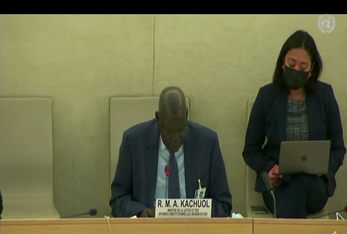
At the end of the commission's update, Ruden Madol Arok Kachuol, Minister of Justice and Constitutional Affairs of South Sudan, made a presentation on behalf of the government of South Sudan. The minister stated that South Sudan has made progress and that the commission's report does not reflect the true findings on the ground. He identified progress made by the government, including the reconstitution of the Legislative Assembly, the establishment of military courts to bring perpetrators to justice, the workshop organized by the government to find a solution to the problem of internally displaced people and refugees, the launch of the Constitutional Process Bill, the establishment of a working group to coordinate the implementation of transitional justice mechanisms, the development of the terms of reference for the Judicial Reform Committee, and the adoption of the Constitutional Amendment Bill that incorporated the provisions of the Revitalized Agreement into the Constitution of South Sudan. Contradicting the committee's findings, he said the security situation in the country is relatively calm and stable, despite the prevalence of what he called inconsequential communal conflicts, which he said are resolved through dialogue and the use of traditional and special courts. He also claimed that the number of displaced persons had decreased considerably. He questioned the commission's authority to investigate economic issues, saying that such an exercise is beyond the commission's mandate.
He concluded his statement by thanking the Council for retaining Item 10 of the resolution, saying that it will contribute to technical assistance and capacity building in the promotion of human rights in South Sudan, but asked the Council to delete item 4, which he said detracts from the efforts of the Government of South Sudan.
Interventions of Interested Delegations.
Following the presentations of the main speakers are the interventions of interested delegations. Several countries and blocs expressed concern about the human rights and humanitarian situation in South Sudan, welcomed the progress made and also acknowledged the invaluable work of the commission.
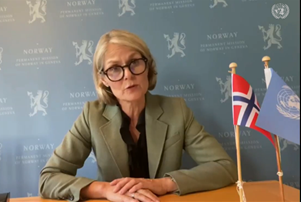
Norway's statement on behalf of the Nordic and Baltic countries urged the government of South Sudan to respect the political and civil rights of its citizens and to stop the crackdown on media and civil society activists. The importance of the UN mechanism in South Sudan was also stressed and the government of South Sudan is urged to cooperate with the commission.
The European Union also expressed concern about various human rights violations, including extrajudicial killings, forced recruitment, attacks on humanitarian workers and widespread and systematic corruption. The commission was asked how the National Security Service (NSS) is linked to widespread corruption, given its link to the oil sector and the effects that have on the enjoyment of social and economic rights. The EU reiterates that, given attacks on civilians along ethnic lines, continued monitoring has become more relevant today.
Albania abhorred the continued fighting in South Sudan and urged the Government of South Sudan to show the political will to combat impunity. It recognized the commitment of the Government of South Sudan to cooperate with the UN mechanism.
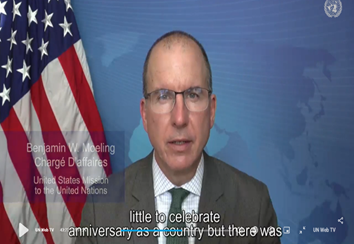
The United States of America welcomed the work of the commission in addressing the grave human rights situation in South Sudan. It said there was little reason to celebrate ten years of independence for South Sudan. They also said that South Sudan's leaders have plundered the country's resources and fueled the conflict. The United States condemned the continued repression of civil society activists and attacks on aid workers and urged the implementation of transitional justice mechanisms. The country also stressed the need for South Sudanese to choose their leaders through an inclusive constitutional process and free and fair elections. The country asked the commission what could be done to reduce mass atrocities in South Sudan.
Venezuela (the Bolivarian Republic of) criticized the Council for its interfering nature and politicization of its agendas against specific countries, which do not have the consent of the country concerned. The country affirmed that South Sudan has made progress through dialogue and reconciliation to improve human rights in the country and called for continued support for the implementation of the Revitalized Agreement.
The Russian Federation applauds the steps taken by the Government of South Sudan in implementing the transition agenda, including the reconstitution of the Legislative Assembly. The country called on all armed groups, not parties to the Revitalized Agreement, to sign up and join the peacebuilding process. It also expressed concern about inter-communal conflicts and attacks on humanitarian workers.
Iran (the Islamic Republic) called for constructive dialogue on human rights issues with objectivity and non-selectivity. It recognized the commitment of the Government of South Sudan to implement the peace agreement and ensure lasting and sustainable peace in South Sudan. It said that the international community should respond to the call by South Sudan for the deletion of item 4 of resolution 46/23.
Non-governmental organizations and civil society groups welcomed the work of the commission and reiterated concern about the human rights and humanitarian situation in South Sudan, in particular extrajudicial killings, restriction of civic space, attacks on human rights defenders and humanitarian work, and pressure on civil society organizations. Some NGOs stressed the crucial role of the commission and urged the Council to extend its mandate next March. Other NGOs reiterated the need for the implementation of the Revitalized Agreement and implored the government of South Sudan to demonstrate its commitment to implementing the agreement. Calls for an end to impunity and political corruption were made by the NGOs.
The Geneva International Centre for Justice (GICJ) delivered a statement on famine and the situation of aid workers and children. The GICJ acknowledged the efforts of Southern Sudan in combating child recruitment but remains concerned about children still trapped in the conflict.
Concluding Remarks
Following interventions by delegations, interested States, NGOs and civil society entities, key speakers made their closing remarks. The Deputy High Commissioner for Human Rights, Nada Al-Nashif, concluded her statement by reiterating her call on the Government of South Sudan to intensify its efforts to address the systemic causes of violence, disarm armed groups, impartially investigate allegations of abuse, and hold perpetrators accountable. The progress of the government of South Sudan was acknowledged, but recommendations were made to end the cycle of impunity and international support for the full implementation of the revitalized agreement.
The chair concluded her remarks by stressing that unless impunity is addressed, the cycle of violence will continue to prevail in South Sudan. She informed the council that the commission will issue an advisory statement on how to organize an inclusive and meaningful consultation for the implementation of Chapter 5 of the revitalized agreement.
In his final remarks, Andrew Clapham responded to the question on the link between corruption and the enjoyment of social and economic rights. He stated that the misappropriation of public funds has prevented the government from investing in health care and education and, by extension, has deprived the people of South Sudan of their rights to health and education. He also pointed out that most of the stolen money is used to buy weapons for local militias, resulting in the deaths of many people, which is a violation of the right to life.
Position of the Geneva International Centre for Justice
The Geneva International Centre for Justice (GICJ) commends the Commission for its crucial work in promoting human rights in South Sudan and for its update on the human rights and humanitarian situation in the country. We thank the commission for its detailed report on the heinous and damaging corruption of South Sudan's leaders and reiterate the call for accountability. We remain deeply concerned about the reported localized violence and call on the Government of South Sudan to collaborate with all stakeholders to end this vicious cycle of violence through dialogue and by holding the perpetrators to account. We emphasize that sustainable peace in South Sudan must be anchored on respect for the rule of law and human rights. To this end, we urge the government and the AU to act swiftly to implement Chapter 5 of the revitalized agreement to give south Sudanese the opportunity to live in peace and dignity.
Attacks on aid workers and human rights defenders must stop. The government of South Sudan must investigate incidents of attacks on aid workers and hold those responsible to account. We remind the government of South Sudan of its commitment to international instruments and the South Sudanese constitution, which guarantee freedom of expression and assembly and urge it to end the crackdown on media, civil society, and activists. We recommend that the government start acting against security agents who intimidate and harass journalists and activists. Open debate and discourse are essential pillars of a just and peaceful society. The government of Southern Sudan must be prepared to listen to the voices of its people to ensure that the transitional justice program is an inclusive solution.
Justice, Human rights, Geneva, geneva4justice, GICJ, Geneva International Centre For Justice
[1] See resolution A/HRC/RES/34/25.
[2] See resolution A/HRC/RES/31/20.
[3] See resolution A/HRC/RES/40/19.
[4] See resolution A/HRC/RES/43/27.
Previous Reports from the 48th Session of the UN Human Rights Council
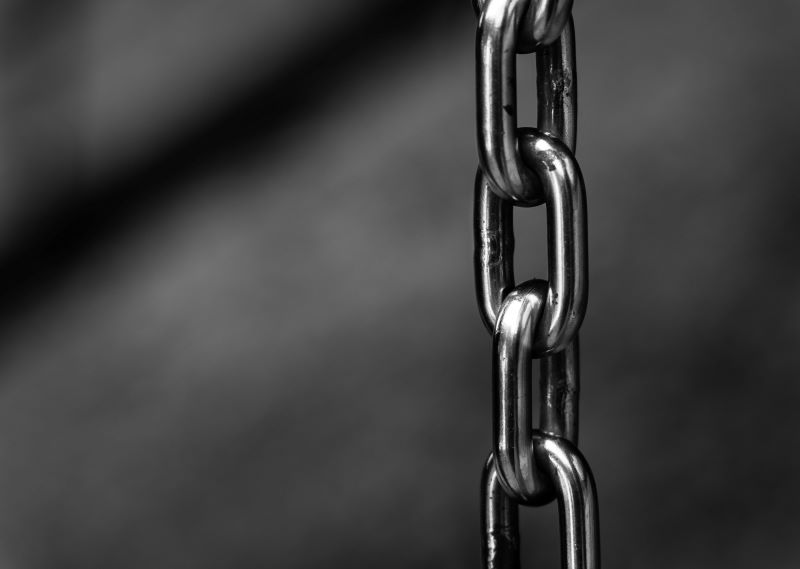 |
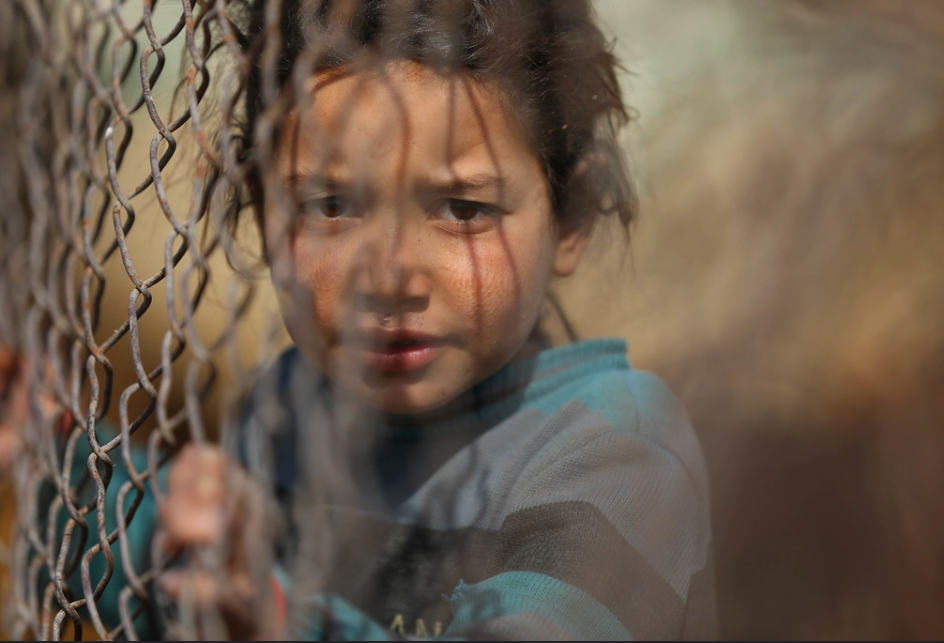 |
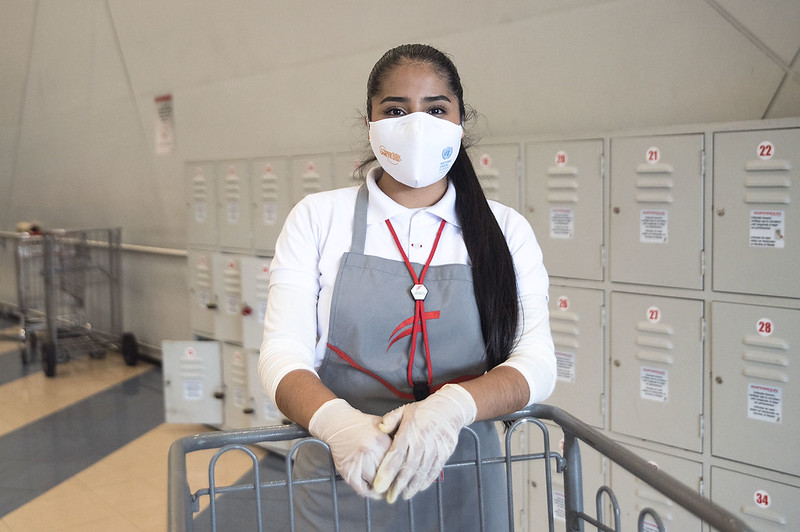 |
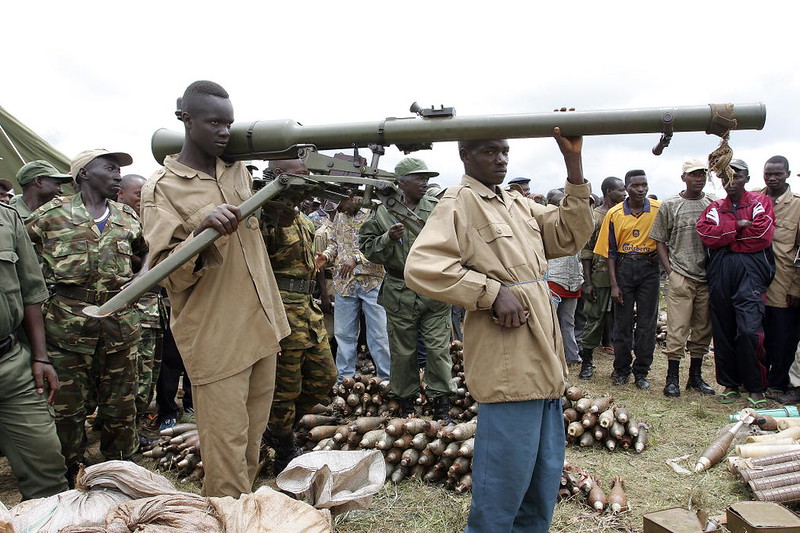 |
| Report on Slavery: causes and consequences | The UN Commission of Inquiry on the Syrian Arab Republic |
Digital Gender Gap during Covid-19 |
Commission of Inquiry on Burundi |




